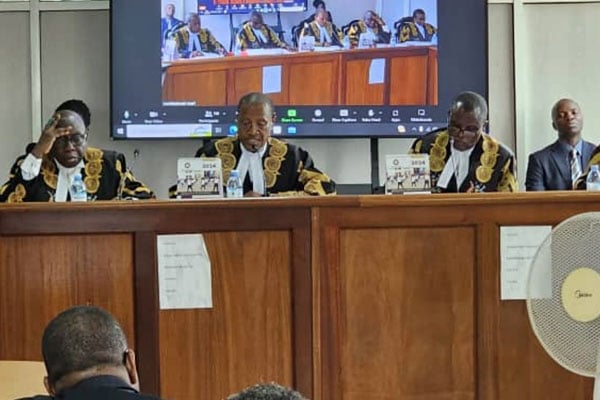In a recent development, the verdict of a highly debated anti-LGBTQ+ case has prompted the reconsideration of donor strategies. The decision has left many donors reassessing their approaches and engaging in discussions to determine the best way forward. This article explores the implications of the verdict and its impact on the donor community.
The ruling in the controversial anti-gay case has sparked a wave of concern among donors, leading them to reevaluate their funding strategies.
The decision, which has been met with widespread criticism from human rights advocates, has caused donors to return to the drawing board as they seek to address the implications of the judgment.
The verdict has raised questions about the compatibility of the ruling with the values upheld by many international donor organizations. These organizations have historically championed inclusivity, non-discrimination, and the protection of human rights.
Consequently, the ruling has presented a significant challenge for donors who prioritize supporting initiatives that promote equality and diversity.
In response to the ruling, donors are engaging in robust discussions to determine the most effective ways to support marginalized communities, including LGBTQ+ individuals, while navigating the legal landscape.
This involves reevaluating funding priorities, exploring alternative avenues for support, and collaborating with local organizations to ensure their efforts align with the needs and aspirations of the affected communities.
Furthermore, the ruling has also sparked conversations about the role of donors in advocating for legal reforms and fostering an environment that respects and protects the rights of all individuals.
Donors are considering how they can leverage their influence to encourage dialogue, promote understanding, and work towards the repeal or amendment of laws that perpetuate discrimination.
It is important to note that while the ruling has prompted a reevaluation of donor strategies, many organizations remain committed to supporting initiatives that foster social progress and human rights.
They recognize the importance of standing in solidarity with marginalized communities and will continue to explore innovative approaches to address the challenges posed by the legal landscape.
The recent anti-LGBTQ+ verdict has undoubtedly had a profound impact on the donor community, prompting a reassessment of funding strategies and approaches.
Donors are actively engaging in discussions and collaborating with local organizations to navigate the implications of the ruling while upholding their commitment to promoting inclusivity and human rights.
The verdict has sparked conversations about the role of donors in advocating for legal reforms and underscores the importance of fostering a society that respects and protects the rights of all individuals, regardless of their sexual orientation or gender identity.


Hi, this is a comment.
To get started with moderating, editing, and deleting comments, please visit the Comments screen in the dashboard.
Commenter avatars come from Gravatar.